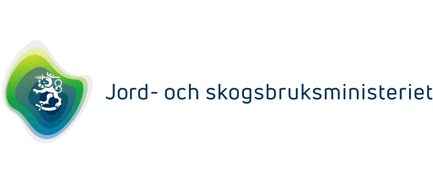Urgent need for 1,500 employees in critical primary production sectors

Finland has decided to restrict border traffic to prevent the spread of the coronavirus. Because of the emergency situation, many agriculture and horticulture enterprise will not be getting the necessary seasonal workforce from abroad.
At the moment, agricultural and horticultural production and caring for farm animals are the most critical sectors in terms of the need for seasonal employees. The joint working group of government ministries, appointed by the Ministry of Economic Affairs and Employment on 25 March, examined the entry to the country of employees for the critical sectors in the emergency situation caused by the coronavirus.
The working group commissioned the Ministry of Agriculture and Forestry and National Emergency Supply Agency to define the most critical sectors in terms of the security of supply in the Ministry’s administrative branch, and the production stages where seasonal workforce is needed right in the beginning of the growing period. The numbers of foreign workforce that could be allowed to enter Finland to get the crucial early season work in primary production done were also specified.
The estimates were based on a recent inquiry made by the producer organisations concerning the need for seasonal employees, statistics from previous years, and views of experts in different fields on tasks that are important in terms of the security of supply.
The tasks considered the most critical and urgent are those concerned with the start of the growing season in agriculture and horticulture and caring for the farm animals. Confirmation that skilled labour for this will be available is needed in just a few days. Maintaining primary production is particularly important for the security of supply, because in the coronavirus situation we cannot be sure that the imports of agricultural and horticultural products will continue in the same way as before. Especially in horticulture most of the seasonal workforce has in recent years come from abroad, which is why the current situation has created a lot of uncertainty in these enterprises.
The sectors and stages of work considered critical in terms of the security of supply are:
- Livestock production: tasks that are crucial in terms of animal welfare and animal protection
- Arable crop production: crucial early season work
- Outdoor vegetable production: early season work, including planting especially for vegetables to be stored
- Seedling production: seedlings for food pants and plant reproductive materials
- Works to start berry plantations: some of the planting and early-stage cultivation tasks
- Commercial fishery: fisheries employees for trawlers
The Ministry of Agriculture and Forestry and National Emergency Supply Agency estimate the number of employees needed from abroad for the critical early season tasks at 1,500. This is about a third of the number of employees that normally come to Finland for seasonal work. On top of this, domestic workforce will be needed to get all early season work done.
Minister of Agriculture and Forestry Jari Leppä thanks the working group for taking such swift action, and considers it important that the number of employees that is absolutely needed would come to Finland as soon as possible.
“We have made this collaborative effort across administrative sectors to make sure that we will have the employees that are critical for the security of supply in our country. Besides this, we are looking for ways to employ seasonal workers who are already in Finland. We will do all we can so that primary production will continue without disturbances.”
The working group appointed by the Ministry of Economic Affairs and Employment has started to review the different functions in terms of the order of emergency. It has considered the numbers of domestic and foreign workforce used in different sectors, when the work is to be done during the year, and the professional skills needed. The task of the working group was to produce a common view on what is considered essential work-related travel and necessary traffic from the security of supply perspective and, to a limited extent, for the functioning of the labour market during a state of emergency.
Next the working group will assess the critical tasks in other sectors and how we should respond to the need for labour in these. The needs of the primary production sectors in a longer terms will also be assessed. The Ministry of Agriculture and Forestry will continue to prepare the practical procedures, together with the relevant actors.
Further guidelines on the procedures for the procurement of seasonal workforce and their border crossing will soon be issued by the Ministry of Agriculture and Forestry, National Security Supply Agency and border authorities.
Inquiries at the Ministry of Agriculture and Forestry:
Veli-Pekka Reskola, Senior Officer, tel. +358 295 16 2193, firstname.lastname@mmm.fi



